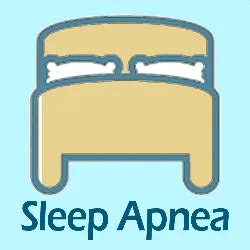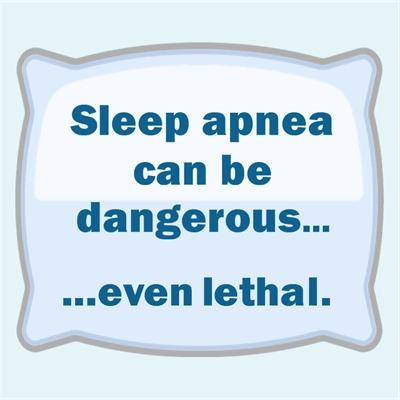Sleep Apnea ? Read on …

Sleep Apnea ? Read on …
Introduction
Sleep apnea is a common sleep disorder characterized by interrupted breathing during sleep, which can lead to various health complications. In this document, we will delve into the self-treatment options for sleep apnea. By understanding the causes, prevalence, symptoms, and exploring natural remedies, we can gain valuable insights into managing this condition effectively. Furthermore, we will explore the correlation between weight and sleep apnea, highlighting the importance of lifestyle changes for better sleep health.
Causes
Sleep apnea can have multiple causes, with one significant factor being poor physical health and well-being. Factors such as obesity, smoking, excessive alcohol consumption, and sedentary lifestyle can contribute to the development of sleep apnea. Obesity, in particular, has a strong association with sleep apnea. The excess weight can lead to the narrowing of the airway, making it difficult to breathe properly during sleep. Furthermore, anatomical abnormalities in the airway, such as enlarged tonsils or a deviated septum, can also contribute to sleep apnea.
Age Prevalence & Genders
Sleep apnea can affect individuals of various age groups, although it tends to be more prevalent among middle-aged and older adults. However, it is essential to note that sleep apnea can occur at any age. In children, enlarged tonsils or adenoids are often a common cause. In terms of gender, studies suggest that males are more commonly affected by sleep apnea than females, although it can still occur in women. Hormonal changes during menopause may increase the risk for sleep apnea in females.
Symptoms
Recognizing the symptoms of sleep apnea is crucial for early detection and effective self-treatment. Common symptoms include loud snoring, frequent awakenings during sleep, excessive daytime sleepiness, morning headaches, and difficulty concentrating. Other symptoms may include irritability, dry mouth, and nocturia (frequent urination at night). However, it is important to note that not all individuals with sleep apnea experience the same symptoms, and some may be unaware of their condition. Therefore, it is crucial to consult with a healthcare professional for an accurate diagnosis.
Natural Remedies
Self-treatment options for sleep apnea often involve natural remedies that can improve overall sleep health. These remedies can include dietary changes, exercises, and specific breathing techniques. Incorporating a balanced diet rich in fruits, vegetables, whole grains, and lean proteins can promote weight management and potentially reduce the severity of sleep apnea symptoms. Foods such as fatty meats, processed snacks, and sugary drinks should be limited. Regular exercise, such as aerobic activities and strength training, can contribute to weight loss and improve respiratory muscle strength. Exercise also helps improve overall cardiovascular health, which can benefit sleep apnea management. Breathing techniques like nasal breathing and diaphragmatic breathing can enhance airflow and promote better sleep quality. These techniques focus on slow, deep breaths, which can help relax the airway muscles and facilitate proper breathing during sleep.
Lifestyle Changes
In addition to specific natural remedies, certain lifestyle changes can positively impact sleep apnea management. Maintaining a consistent sleep schedule is crucial, ensuring you go to bed and wake up at the same time every day. Creating a sleep-friendly environment, such as a dark, quiet, and comfortable bedroom, can promote better sleep quality. Practicing good sleep hygiene, which includes avoiding caffeine and heavy meals before bedtime, limiting screen time, and creating a relaxing pre-sleep routine, can also contribute to improved sleep. Weight management through a combination of healthy eating and regular physical activity is vital for managing sleep apnea effectively. Losing weight can help reduce the severity of sleep apnea symptoms and improve overall health. Seeking professional guidance from healthcare providers and nutritionists can be beneficial in developing personalized weight management strategies.
Snoring
It is common knowledge that people who snore are more likely to suffer from sleep apnea. Training yourself to nasal breathe throughout the day and during sleep is essential to reduce or eliminate sleep apnea. Nasal breathing helps to optimize airflow and improve oxygenation. There are numerous resources available on YouTube that provide guidance on training yourself to nasal breathe effectively.
Sleep Position
Another important lifestyle change to consider is your sleep position. Sleeping on your right side, rather than on your back, can be beneficial in managing sleep apnea. When you sleep on your back, gravity can cause the tongue and soft tissues of the throat to block the airway, leading to breathing difficulties. By sleeping on your right side, you can potentially reduce the likelihood of airway obstruction and improve breathing during sleep.
Explore the Correlation Between Weight & Sleep Apnea
Weight plays a significant role in sleep apnea, and there is a strong correlation between obesity and the development and severity of the condition. Excess weight can contribute to narrowing of the airway, leading to breathing difficulties during sleep. By addressing weight-related concerns, individuals can significantly improve their sleep apnea symptoms. Weight loss can be achieved through a combination of dietary modifications and regular physical activity. Aiming for a gradual and sustainable weight loss approach is important to ensure long-term success. Working with healthcare professionals and specialists in sleep medicine can provide personalized guidance and support for weight management in relation to sleep apnea.
Conclusion
Self-treatment of sleep apnea involves a holistic approach, considering the causes, symptoms, and natural remedies. By focusing on lifestyle changes, including dietary modifications, exercise, and breathing techniques, individuals can take an active role in managing sleep apnea and improving their overall well-being. Understanding the correlation between weight and sleep apnea highlights the importance of weight management for better sleep health. Remember, if you suspect you have sleep apnea, consult with a healthcare professional for an accurate diagnosis and guidance tailored to your specific needs.





 Over 500 health and wellness products
Over 500 health and wellness products Everyday savings and weekly promotions
Everyday savings and weekly promotions The best natural and organic produce from around the world
The best natural and organic produce from around the world Committed to you - over 10 years of trusted service
Committed to you - over 10 years of trusted service



